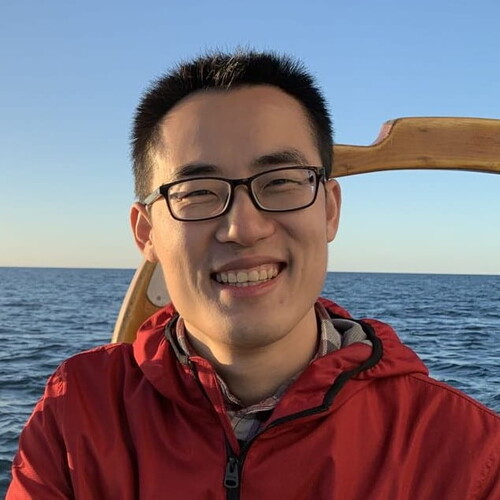
August 17, 2023
Yuan Ren, PhD, a postdoc in the Berro Lab, was selected as a Whitman Fellow to perform research at Marine Biological Laboratory (MBL) this summer. His project focuses on developing sensitive, quantitative methods to measure forces in cells.
According to the fellowship description, MBL aims to “convene biologists from around the world each year to advance the mission of biological discovery.” During his stay at MBL, Ren will focus on advancing a mechano-sensing technique that relies on disturbing coiled coil interactions. Specifically, he will apply his newly developed approach to studying forces on
mechanotransduction ion channels.
Coiled coils are a common protein structural motif that rely on hydrophobic packing of two or more supercoiled alpha helices into a “knobs-into-holes” orientation. Depending on the length and amino acid profile of the coiled coil, forces can break this interaction. Partnering with Jie Yang in Yongli Zhang’s group, Ren engineered multiple coiled coils of varying affinity with
varying responses to applied force. Yang employed optical tweezers to pull each end of a coiled coil construct apart until the interaction broke, allowing him to calculate down to a piconewton the force required to disrupt the interface.
Between the coiled coil, Ren placed a short peptide linker that becomes exposed only upon unwinding. By placing this coiled coil construct into a protein(s) of interest, researchers can measure forces in live cells. One such construct includes a cleavage sequence in the linker region that becomes exposed to proteases only upon unwinding in response to a minimum force through the protein. By testing an array of coiled coil constructs of known force stability, researchers can then quantify forces across various proteins and cell compartments. A major advantage of the Berro Lab’s method is the small size of the coiled coil. Current approaches often rely on Förster resonance energy transfer (FRET)-based methods, which require large moieties that often interfere with protein function. The compact structure of the coiled coil is less likely to affect protein localization, conformation and activity, thus providing a less obtrusive and more accurate readout for force responses in cells.
Thus far, the researchers have measured forces on five different proteins in yeast cells, mammalian cells, and worm axons. The Whitman Fellowship will allow Ren and the Berro Lab to continue striving toward providing the broader research community with a readily available approach to reliable force measurements in cells.
By Brigitte Naughton